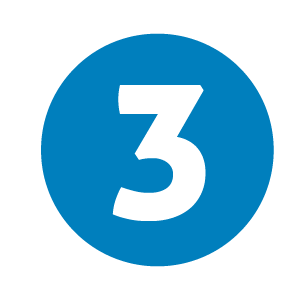How bad is uncertainty for you, for your clients, for the world? Uncertainty is a problematic feeling – yet it’s also essential in coaching because it signals learning and growth. Here’s how.
Would you rather know that you WILL get a small electric shock… or would you rather have a 50/50 chance you will get one? While logically, a 50% chance is safer than 100%, in an intriguing study at University College London, most people found the pain of uncertainty worse than the pain of the shock, and selected 100%.
How much uncertainty and change is ahead? Consider just these 3 data points:

Business changes
76% of CEOs report making major changes to their businesses in the last year, and still 45% say their companies won’t survive for 10 years if they stay on the current path (Source: PWC Global CEO Survey)

Societal shifts
54% decline in global fertility since 1950 (from an average of 5 births per woman in 1950 to 2.3 births per woman in 2021). As living standards increase, birthrates fall. India just recently surpassed china as the most populous country (source: UN Population Fund)

Wellbeing threats
2x increase in school loneliness from 2012-2018 (and it’s worse now) – at level of clinical concern in 97% of the countries sampled – it’s worse for girls, and it’s correlated with increased phone and internet use (source: Journal of Adolescence)
So here we are. Welcome to the Age of Uncertainty, heralded by massive economic and societal changes. Early in the pandemic, we kept hearing the phrase, “in these unprecedented times…” – that’s the new normal. Looking at the neuroscience around uncertainty, this presents painful challenges… and vital opportunities for how we work with clients in emotional intelligence coaching.
This article is from the 🌱 Emotional Intelligence Coach Newsletter
Click here & choose the newsletters that will help you practice and grow emotional intelligence
The Uncertainty Problem
‘Our Brains Were Not Built for This Much Uncertainty,’ a recent Harvard Business Review article, highlights the issue:
“… the brain likes habits and recognizable patterns and evolved to be uncertainty-averse. When things become less predictable — and therefore less controllable — we experience a strong state of threat. The Fight-Freeze-Flee response leads to decreases in motivation, focus, agility, cooperative behavior, self-control, sense of purpose and meaning, and overall well-being.
In addition, threat creates significant impairments in working memory: You can’t hold as many ideas in your mind to solve problems, nor can you pull as much information from your long-term memory when you need it. Threats of uncertainty literally make us less capable, because dealing with them is just not something our brains evolved to do.”
As uncertainty increases, our brains treat it as increasingly dangerous, and we enter a cycle where uncertainty escalates: uncertainty → discomfort → distress → more uncertainty… Here’s what’s happening in your brain.
The Upside of Uncertainty for Coaching
In a recent coaching session, my client talked about wanting to get out of old patterns and step into a new way of engaging. I asked, “How would you know you’re on the right track?” Answer: “I’d feel uncertain.”
Exploring further, I realized the value of uncertainty as a signal of learning and growth. When we feel uncertain, it means we’re in new territory. Sometimes that pushes us to shut down, but sometimes it’s an invitation to grow.
Uncertainty is feeling that blends anticipation (looking ahead) and fear (threat). If it’s mixed with distrust (lack of safety) then uncertainty will push us to move into protection. Probably using the Fight-Flee-Freeze reaction cycle.
Yet when uncertainty is mixed with trust (psychological safety), we experience a dramatically different outcome. I suspect it’s linked to perceived resources; distress means we perceive the problem to be bigger than our resources to address it. In a similar way, when we perceive that we have the resources (internal and external) to handle the uncertainty, we move into a state of learning. To explore the neuroscience further, check out this article on The Neuroscience of Chai where I explain the parallel reward circuits that govern learning from risk-taking.
Coaching Uncertainty
In “How to Coach Like a Vacation,” I offered tips on shifting the coaching conversation to take advantage of novelty, contrast and safety. Let’s imagine you’ve integrated those strategies, and you’re coaching a client who’s struggling to find the upside of uncertainty.
You ask something like: “As you imagine stepping forward with these plans, what feelings come up for you?”
Your client responds: “There’s just too much unknown. Especially with all the complexity in the world, I feel really uncertain, and that’s exhausting.”
Aha! Can you ‘hear’ in that response that the client is expressing a perceived lack of resource? The problem is bigger than the assets available.
So, we can help the client consider both sides: Breaking the problem into smaller bites, and increasing the resources. The first is fairly well-known, so let’s focus on the second. It might start with an exploration to check this hypothesis, eg:
“What’s supporting you and not supporting you to step into this?”
Then, after exploring, if the client wants to go forward, it might sound like:
“Given the challenge you’re facing, what might help you feel more supported to move forward?”
– or –
“Can you think of a time when you felt more able to handle this kind of challenge? What helped you then?”
– or –
“If you had a lot of support to take this on – from inside you, and from around you – how would that feel?” … “What might that support look like?”
Whether you’re a professional coach, or contemplating earning certification as a professional emotional intelligence coach*, or you’re someone who uses coaching techniques to support others: of course these questions apply to us first.
* Did you know? In addition to top-level accreditation from the International Coaching Federation, the EQ Coach Certification is one of a handful of coaching certifications in North America that also provides master’s level credit? You’ll earn almost ⅓ of your MBA or MA in this program.
Try It Yourself: Building Resources to Step into Uncertainty
To see if this approach makes sense to you, please consider a challenge you’re facing, where you’re feeling the weight of uncertainty. Take a moment and focus on the downside: Read the stats at the start of this newsletter, reflect on what a mess we’re facing in the world. Really emphasize that feeling of difficult-uncertainty.
Now, take yourself through the questions above. What happens?
Please share your experience in the comments!
In the meantime, thank you for reading, and being part of Six Seconds’ emotional intelligence coaching community.
For more on EQ and Coaching 🌱, I recommend:
Neuroscience ‘tricks’ for change
- Knowing Isn’t Coaching: Three Emotional Intelligence Tools for Professional Coaches - April 3, 2024
- Coaching Down the Escalator: 3 Emotional Intelligence Tips forCoaches to Reduce Volatility & De-escalate Conflict in a Polarized World - March 6, 2024
- Dr. Daniel Goleman Explains the History of Emotional Intelligence - February 29, 2024

